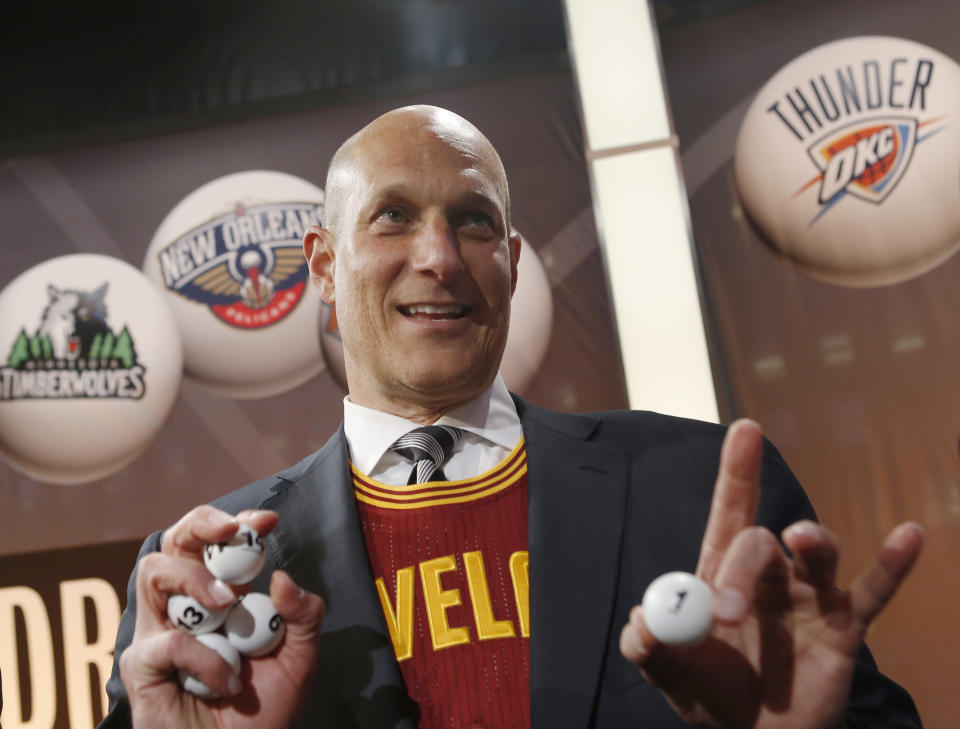The key difference between lottery winners and pro athletes
It’s the largest Mega Millions in history, with the jackpot at $1 billion for Friday night’s drawing.
This leads to the age-old predicament: how do winners manage the sudden influx of cash? True Capital Management, which manages over $1 billion in assets, started in 2006 as a wealth management platform designed for professional athletes. The firm also has clients who come across sudden wealth, including two lottery winners — each of them scoring over $100 million. TCM President and Chief Operating Officer Heather Goodman compared the way pro athletes and lottery winners think about their vast fortunes.
While the firm takes a personalized approach for each household, its underlying philosophy remains constant: you won’t be able to make this amount of money ever again so don’t squander it.
“Once professional athletes retire or finish playing, they’re never going to be able to recreate that salary in another profession. You have to recreate the income stream from existing assets. For our lottery winners, they’ve got a lump sum of money, and we work with them to create whatever they decide. But it should be income generating from assets rather than depleting,” Goodman told Yahoo Finance.

TCM represents 220 households, 85% of which are current and former players in the NFL, MLB, NBA and WNBA. The San Francisco-based firm also works with several tech entrepreneurs who hit the proverbial jackpot when they took their companies public. Like any wealth manager, TCM makes money by charging a percentage of assets under management on a quarterly basis.
Pro athletes and lottery winners are both notoriously bad at holding onto their wealth. Within five years of retirement, 60% of former NBA players go broke. And a reported 78% of former NFL players have gone bankrupt or are under financial stress just two years after retirement. Lottery winners are more likely to go bankrupt within three to five years than the average American.
But Goodman said her clients who won the lottery are actually smart about their sudden windfall, mostly because they recognize they haven’t earned it.
“Lottery winners know this is their one shot. Athletes don’t know how short their potential time frame may be. It’s hard to think when you’re a No. 1, or No. 2 pick that this may only last for five to eight years,” said Goodman. “[Athletes] tend to be younger and have complexes of immaturity, invincibility and immortality.”
Still, the problems facing both cohorts are strikingly similar — a top concern being family, friends and everyone coming out of the woodwork to get a piece of the earnings.
What winners should do with all their newfound money
Neither of Goodman’s lottery-winning clients had any exposure to wealth or money. She categorizes them as lower- to middle-class, undereducated, people leading non-professional lifestyles. Naturally, family and friends, but also every random acquaintance had started reaching out to them for assistance.
“The foundation is identifying who is important to you, what you are trying to accomplish for that person and what kind of lifestyle you want or think you need to live. That’s the hardest part for anyone who comes into a good amount of money from a family or a situation where they’ve had very little,” she said.
Most of TCM’s clients try to create jobs or businesses for family members, employees and the ‘entourage’ so that they aren’t just giving out handouts. Goodman’s clients have opened up everything from car washes and auto body shops to restaurants and clubs. And most of them have lost money in the process.
“Our job is to help them come up with a profitable business, not a shell company — that can use their skills and ability to actually work and earn money so they can be contributing to society… not just freeloading,” she said.
For one of the lottery winners, Goodman and her team created a real estate company where they invested in apartment buildings and made the siblings shareholders. Of course, it created an income stream for the family, but the siblings also played an integral role in the company, sitting in quarterly meetings and learning about the business.
Wealth managers like Goodman see potential clients every time there’s buzz surrounding big jackpots. “We have thought, ‘Should we pursue lottery winners?’ They’re wonderful clients once you get things in control. We’ve proven it in two different situations using similar scenarios and approaches. Now we’re contemplating whether we want to market ourselves as the wealth advisors to lottery winners.”
Melody Hahm is a senior writer at Yahoo Finance, covering entrepreneurship, technology and real estate. Follow her on Twitter @melodyhahm.
Read more:
Coach signs Michael B. Jordan as its face of menswear
Elon Musk’s brother Kimbal is personally delivering Tesla Model 3s

 Yahoo Finance
Yahoo Finance 